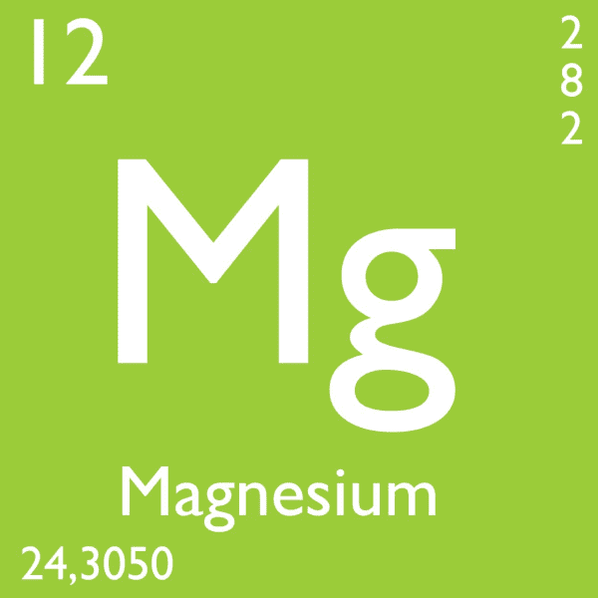The correct treatment for inflammation of the prostate gland is based on the results of research, the level of pathological development, complaints and assessment of the general condition of the patient's body. They mainly use tablets for prostatitis and physiotherapeutic procedures. After consulting your doctor, you can also use traditional methods. Let's find out which medicine in tablet form is prescribed for treatment, and consider possible medical effects.
The effectiveness of treating prostatitis with drugs

Treatment of pathology in any form with the help of drugs is the most effective. But today, the treatment of prostatitis is a difficult task, so other methods should not be neglected. It is the combined effect that allows you to achieve the desired result. Treatment lasts several weeks, if necessary the course is extended to several months.
Depending on the test results, the treatment regimen is based on antibiotics, which destroy pathogens in the body and stop the inflammatory process. To normalize well-being, men are given additional vitamins and drugs, in particular, immunostimulating agents that help restore the body's defenses and prevent relapses.
What medicine is used to fight this disease?
The urologist sends the patient for examination and, after receiving the results, draws up an individual treatment plan. It is recommended to comprehensively use fast-acting tablets and therapeutic massage in the affected area, and for additional support of the body - physiotherapeutic and folk remedies. Drug therapy options consist of different types of drugs:
- antibacterial agents;
- anti-inflammatory;
- hormones;
- alpha blockers;
- painkillers;
- drugs to improve blood circulation;
- peptides;
- immunomodulators.
Depending on the individual characteristics of the patient, the list of drugs may be subject to change. But the main components are always the same. Doctors eliminate inflammation, help patients get rid of bacterial infections and normalize prostate function.
Antibiotics
Antibacterial therapy aims to eliminate the bacteria that cause the development of the disease. Antibiotics quickly neutralize negative factors, stop the inflammatory process and reduce the severity of chronic pathologies. Often, patients are given tablets.
The standard course of therapy lasts for 3 weeks. The choice of antibacterial drugs is individual; you must get the test results first. Drugs intended for oral use act quickly and effectively and have almost no negative side effects. Active components accumulate in the affected tissue, which allows for a long-lasting therapeutic effect. The most common drugs include fluoroquinolones.
Alpha blockers
The inflammatory process is accompanied by difficulty urinating. It is possible to restore the basic functions of the urinary system with the help of alpha blockers. In addition, such a composition improves the function of the reproductive system. Entering the body, the tablets directly affect the nerve cells that control the function of the urethra and bladder. Due to the positive effect, spasms disappear and muscle tissue relaxes. When blood circulation is normal, the prostate is supplied with sufficient oxygen and nutrients.
This medicine is effective if necessary to eliminate the following symptoms:
- pain during urination;
- disturbances in the outflow of urine;
- swelling of the prostate gland;
- inflammation.
Alpha adrenergic blockers are effective in chronic processes.
It takes a long time to take the drugs. The average course duration is 8 months. This type of medicine chosen by the doctor not only treats the affected tissue, but also relieves the man from the unpleasant symptoms of the disease.
Painkillers
Prostatitis is almost always accompanied by pain, especially when urinating. To get rid of it, you need to take analgesics. In this case, microenemas are more effective than tablets, providing an accelerated transfer of the active ingredient to the affected area. In addition, the kidneys, liver and digestive tract are not exposed to toxic effects.
Vitamins and microelements for the prostate
At home, you can normalize the function of the prostate gland by using microelements and vitamins:
- Vitamin E (tocopherol)- must be present in the body in sufficient quantities to maintain the normal function of the prostate and stimulate the secretion of sex hormones. Tocopherol is involved in the formation of interleukins, which destroy pathogenic bacteria and viruses in the gland. The same substance suppresses the action of prostaglandins and leukotrienes formed in glandular tissue as a result of excessive meat consumption. To provide the body with tocopherol, it is necessary to include dishes containing vegetable oil in the diet.
- Vitamin C (ascorbic acid)- needed to protect the body from harmful effects, to maintain potency and increase the ability to fertilize. Sources include citrus fruits, rose hips, and sauerkraut.
- Vitamin A (retinol).Experts recommend ensuring regular intake of retinol, which is necessary for sperm production. Vitamins protect the mucous membrane of the genitourinary tract from the development of inflammatory processes. Sources include eggs, liver, red pepper, pumpkin, and carrots.
- Vitamin D (calciferol)- promotes the activation of the process of the formation of sex hormones, participates in the reproduction of cells that make up glandular tissue. To normalize vitamin levels, you should take fish oil.
- B vitamins– required for proper metabolism and proper functioning of the nervous system. With a sufficient amount of vitamins of this group, a favorable hormonal background is formed. It is possible to increase the level of vitamins in the body with the help of nuts, bananas, and yeast.
- Zinc- microelements help eliminate sexual dysfunction, support prostate activity and help hormone formation.
- Magnesium and selenium— supports gland function together with zinc.

Good nutrition is necessary to prevent prostate disease and maintain male health. With a lack of necessary microelements and vitamins, reproductive abilities are disturbed, and typical pathologies for men arise. In this case, the risk of getting prostatitis and prostate adenoma with degeneration into cancer increases.
Medicines to improve blood circulation
Many doctors prefer to treat prostatitis with fast-acting tablets. To improve microcirculation, two groups of drugs are intended - blood thinners and antispasmodics.
Medicines from the first group do not allow blood clots to form and break and block blood vessels. If the tablet form is preferred, it is recommended to choose a drug that is effective in the early stages of the disorder. In difficult cases, injections are prescribed.
Antispasmodics relax the muscles, as a result of which the blood flow in the prostate gland increases moderately. In addition to the drugs familiar to many, doctors prescribe the latest generation drugs that have a comprehensive effect on the body.
Urologists can prescribe drugs for joint use - antispasmodics and thinning, phosphodiesterase inhibitors that increase potency. The medicinal components really quickly normalize the blood flow, but the prescription is only possible for acute manifestations of the disease.
Microcirculation is also improved with herbal remedies. Negative effects on the body are minimal, tolerance is good. This type of product is made from plant extracts. Blood circulation is effectively restored by homeopathic tablets based on antibodies to prostate-specific antigens, further cleaning the blood vessels. The herbal composition is quite safe, but it is used only on the recommendation of a urologist.
Contraindications
The general list of contraindications is as follows:
- severe renal failure;
- suspicion of malignant tumor formation in the prostate;
- acute inflammation in the urinary tract.
Depending on which drug is chosen, there are additional contraindications. Before using any medicine, read the instructions carefully. If it turns out that a certain drug is not suitable for you, you can always find an analogue with the help of a doctor. Study the drug rating and get your doctor's advice.
Side effect
Individual intolerance to the components of the drug is the main side effect. Depending on the toxicity of the drug used, negative manifestations may vary. Read the instructions carefully.
It is possible to cure prostatitis with minimal negative reaction of the body to the medicine. Together with your doctor, choose the least toxic drug.
An integrated approach is key to recovery
Long-lasting positive results are possible by performing a set of steps aimed at achieving the following tasks:
- elimination of inflammation;
- normalization of microcirculation in the pelvic organs;
- resumption of full outflow of secretions from the gland;
- relieves spasms in the muscular structure of the perineum and urinary system;
- restoration of free flow of urine;
- elimination of sexual dysfunction;
- relieves swelling in the affected area;
- potential increase.
Prevention

- Exercises that involve impact on muscle structure. Contractions help keep the perineal muscles taut and maintain normal blood circulation. It is enough to allocate 10 minutes every day for exercise. Muscle contractions bring invaluable benefits to those who have a sedentary job.
- Walk often. Men who are not lazy to walk a lot rarely suffer from prostatitis.
- Cold and hot shower. Massage with jets of water with different temperatures is beneficial for blood circulation and immunity.
- Professional massage in the lumbar area. Four sessions per year are required.
- Diet food. It is enough to exclude smoked foods from your diet.
- Stop bad habits - cigarettes and alcohol.
- Introduce vegetables, fruits, walnuts, pumpkin seeds and seafood into the diet.
- Regular exam. After detecting chronic prostatitis, an examination by a doctor should be regular. Visit a urologist every six months, do not provoke seasonal diseases.
- Avoid hypothermia. Protect the protection system from failure, do not expose the body to drafts and low temperatures.
Conclusion
Inflammation of the prostate gland mainly develops in middle-aged men, but young men also face this problem. Don't let your health get to such a level. Get treatment for emerging illnesses right away, don't delay forever.

The inflammatory process in glandular tissue is painful for a man. But some patients prefer to endure unpleasant sensations, which are absolutely not allowed. Medical help without delay is the right choice, otherwise it will be difficult to get rid of the pathology even with the help of effective pills for prostatitis.
Medicines themselves are also dangerous. Leave the choice of medication to your doctor. The process of determining the appropriate drug is associated with many nuances that must be taken into account without fail. Every body is unique, and medicine that helps one person may not necessarily help another.
Do not be treated with the "grandmother" method without first consulting a doctor. Such a method seems harmless, but it is not. For each technique there are specific contraindications. By doing the wrong thing, you risk making the problem worse, and it's not easy to get rid of it with pills.
Is your health condition getting worse? Go to the doctor, get a test, and be treated with a fast-acting tablet for prostatitis, which is prescribed by a urologist based on the results obtained, your general health and the degree of progression of the disease.
The inflammatory process that occurs in the prostate gland can be effectively eliminated only through medication. Other methods are additional and speed up recovery. Drug therapy is not used for patients who are contraindicated to be treated with such methods. In other cases, tablets for prostatitis must be included in the treatment regimen for the pathological process and used subject to the received recommendations.























